Juice production
High-quality juices from modern production
The quality of our juices is determined by our production. The production steps from harvesting to bottling are decisive for the quality of our premium pure juices.
The raw material - strict incoming inspections for the best quality
We maintain long-term relationships with our contract growers and suppliers. They deliver the raw goods to our production site in Unkel. Before we process the raw goods, they are intensively checked. The fruit undergoes strict incoming inspections and is tested for fruit-typical characteristics such as ripeness, colour and taste. The fructose and acid content are also precisely determined. In order to exclude undesirable contamination, such as pesticide residues on the fruit, we work together with reputable partners. Our quality criteria and thus the demands on our delivered raw materials often exceed the legal requirements. Only when the internal inspections have been carried out to our complete satisfaction and in accordance with the legal requirements are the raw materials processed into our high-quality juices.
Pressing the fruit
We predominantly use the single pressing method. This means that the fruits are pressed only once by our modern presses. In this way, we achieve the high quality of Rabenhorst pure juice and can preserve the valuable ingredients as far as possible. Find out everything about pure juice on this page.
The pomace - the so-called press residue that is produced during the pressing process (during the processing of the raw materials) - is passed on as a valuable material to the food, pharmaceutical and cosmetics industries.
Did you know?
Our juices are characterised by their natural juice quality. We therefore deliberately refrain from clarifying or filtering our juices in order to preserve the natural cloudy substances in the juices. However, if it is technologically indispensable to remove the natural cloudy substances, this is done by mechanical separation. As we do not clarify our juices, the majority of our juices are vegan - except for those containing honey. Read here which juices you can consume without hesitation as a vegan.
Pasteurisation and bottling of the juices
After the raw materials have been pressed or processed, the juices are either bottled purely or first stored temporarily in our modern tank farms. During bottling, a special pasteurisation process is used to prevent the juice from fermenting at the lowest possible temperatures. In this article you will learn exactly how the pasteurisation process works and what pasteurisation means.
The Rabenhorst amber glass bottles
We mainly use amber glass as packaging material, which has excellent properties. It protects the juices and the nutrients they contain from UV light during transport and time on the shelf. The ingredients and vitamins, especially the B vitamins, are sensitive to UV light. Without the light protection of the amber glass bottle, these vitamins break down more quickly. Odour and taste are also preserved and are not affected.

